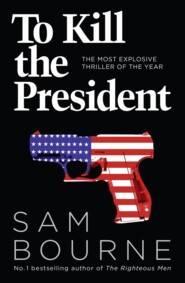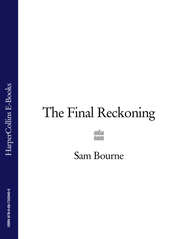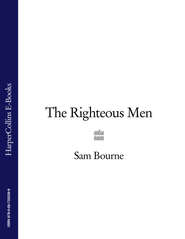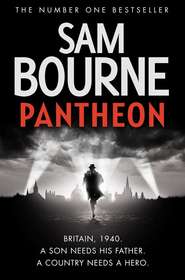По всем вопросам обращайтесь на: info@litportal.ru
(©) 2003-2024.
✖
Sam Bourne 4-Book Thriller Collection
Автор
Год написания книги
2018
Настройки чтения
Размер шрифта
Высота строк
Поля
‘It was dark.’
‘Yeah, pretty dark and pretty late. Anyway, when I was standing over it, I thought. That ain’t a sofa, that ain’t a chair. That’s a body under that blanket.’
‘Sorry, I’m asking you to go back to what you saw right at the beginning. Before the blanket was laid on the corpse.’
‘That is what I’m describing. What I saw was a dark blanket with the shape of a dead man underneath.’
‘The blanket was already there? So you were not the first to find him.’ Damn.
‘No, I was the first to find him. I was the one who called the police. Nobody else did. It was the first they’d heard of it.’
‘But the body was already covered?’
‘That’s right.’
‘The police seem to think it was you who laid down the blanket, Rosa.’
‘Well, they’re wrong. Where would I get a blanket from in the middle of the night? Or do you think black folks carry blankets around with them just in case? I know things are pretty bad round here, but they’re not that bad.’ None of this was said with bitterness.
‘Right.’ Will paused, uncertain where to go next. ‘So who did leave that blanket on him?’
‘I’m telling you the same thing I told that police officer. That’s the way I found him. Nice blanket, too. Kind of soft. Maybe cashmere. Something classy, anyway.’
‘Sorry to go back to this, but is there any chance at all you were not the first there?’
‘I can’t see how. I’m sure the police told you. When I lifted that blanket, I saw a body that was still warm. Wasn’t even a body at that time. It was still a man. You know what I’m saying? He was still warm. Like it just happened. The blood was still coming out. Kind of burbling, like water leaking from a pipe. Terrible, just terrible. And you know the strangest thing? His eyes were closed, as if someone had shut them.’
‘Don’t tell me that wasn’t you.’
‘It wasn’t me. Never said it was.’
‘Who do you think did that – closed his eyes, I mean?’
‘You’ll probably think I’m crazy, what with the way they knifed that poor man to death, but it was kinda like . . . No, you’ll think I’m crazy.’
‘Please go on. I don’t think you’re crazy at all. Go on.’ Will was stooping now, an instinctive gesture. Being tall was usually a plus: he could intimidate. But right now he did not want to tower over this woman. He wanted to make her feel comfortable. He bent his shoulders lower, so that he could meet her eyes without forcing her to look up. ‘Go on.’
‘I know that man was murdered in a horrible way. But his body looked as if it had been somehow, you know, laid to rest.’
Will said nothing, just sucked the top of his pen.
‘You see, I told you. You think I’m crazy. Maybe I am!’
Will thanked the woman and carried on through the projects. He only had to walk a few blocks to get into real sleaze country. The boarded-up tenements he knew served as crack-houses; the shifty looks of young men palming off brown parcels to each other while looking the other way. These were the people to ask about Howard Macrae.
Will had ditched his jacket by now – a necessary move on this bright September day – but he was still encountering major resistance. His face was too white, his accent too different. Most assumed he was a plain-clothes cop, drugs squad probably. For those who spotted it, the car following a few blocks behind hardly helped. Most people started walking the moment they saw his notebook.
The first crack in the ice came the way it always does – from just one person.
Will found a man who had known Macrae. He seemed vaguely shifty but, above all, bored, with nothing better to do than to while away a few daytime hours talking to a reporter. He rambled on and on, detailing long gone and wholly irrelevant local disputes and controversies as if they would be of burning interest to the New York Times. ‘You want to put that in your paper, my friend!’ he would say over and over, with a bronchial, smoker’s laugh. Heh-heh-heh. Humouring folks like this was, Will concluded, an occupational hazard.
‘So what about this Howard Macrae?’ said Will, when his new acquaintance finally took a breath during an analysis of the flawed stop light system on Fulton Street.
It turned out he did not know Macrae that well, but he knew others who did. He offered to hook Will up with them, introducing the reporter each time with the priceless character reference: ‘He’s OK.’
Soon Will was forming a picture. Macrae was a certifiable, card-carrying low-life. No doubt about it. He ran a brothel; had done for years. The sleaze community seemed to have a high regard for him: apparently he was good at being a pimp. He ran a functioning whorehouse, kept it looking all right – even took the girls’ clothes to the Laundromat. Will got inside, to see the rooms for himself. The best he could say for it was that it was not nearly as disgusting as he had imagined. It looked a bit like a clinic in a poor neighbourhood. There were no needles on the floor. He even noticed a water-cooler.
The whores told him the same story. ‘Sir, I can’t tell you anymo’ than what the lady already told you: he sold ass. Tha’s what he did. He collected the money, gave some to us, and kept the rest for hisself.’
Howard seemed to have been a contented sort of pimp. The brothel was his domain and he was obviously a genial host. At night, Will discovered, he would put on loud music and dance.
It was late in the evening before Will found what he had been looking for all day: someone genuinely mourning the death of Howard Macrae. Will had contacted the undertakers, who were waiting for the body to be transferred to them from the police morgue. He got the cab to drive over to the funeral home, a rundown place that was depressing even by the standards of the rest of the neighbourhood. Will wondered how many of these ‘garden-variety gangland killings’ they had to clear up.
Only the receptionist seemed to be around, a young black woman with the longest, most outlandishly decorated nails Will had ever seen. They were the only spot of brightness in the entire place.
He asked if anyone had been in touch to organize a funeral for Howard Macrae. Any relatives? No, none. The girl on the desk had the impression Macrae had no family. Will tutted: he needed more personal detail, more colour, if this piece was to work out.
Will pushed harder. Had no one been in touch about Mr Macrae, no one at all? ‘Oh, now that you mention it,’ said Nail Girl. At last, thought Will. ‘There was one woman, called in around lunchtime. Asked when we were going to have the funeral. Wanted to pay her respects.’
She found a Post-it with the woman’s details. Will dialled the number there and then. When a woman answered, he said he was calling from the funeral home: he wanted to talk about Howard Macrae. ‘Come right over,’ she said.
In the cab, Will instantly reached for his BlackBerry, tapping out a quick email to Beth. There was a rhythm to all this electronic communication: BlackBerry by day, when he knew his wife was near a computer terminal, text message by night when she was not.
Quick psychology lesson needed. Need to get interview with woman who knew the victim. Have led her to believe I work for funeral company. Will now have to reveal truth: how do I do that without getting her so angry she throws me out of her house? Need yr considered opinion asap, am just few mins away.
xx W
He waited; but there was no reply.
It was twilight when Will tapped on the screen door. A woman poked her head out of the upstairs window. Early forties, Will guessed; black, attractive. Her hair was straightened, with an auburn hue. ‘Coming right down.’
She introduced herself as Letitia. She did not want to give her last name.
‘Look, my name is Will Monroe and I apologize.’ He began babbling that this was his first big story, that he had only lied because he was desperate not to let his bosses down, when he noticed that she was neither doing nor saying anything. She was not throwing him out, just listening to him with a faintly puzzled expression. His voice petering out now, he gave her a pre-cooked line: ‘Look, Letitia. This may be the only way the truth about Howard Macrae will ever come out.’ But he could see it was not needed. On the contrary, Letitia seemed rather glad to have the chance to talk.
She gestured him away from the front door towards a living room cluttered with children’s toys.
‘Were you related to Howard?’ he began.
‘No.’ Letitia smiled. ‘No, I only met that man once.’ That man. Here we go, thought Will. Now we’re going to get the real dirt on this Macrae. ‘But once was enough.’
Will felt a surge of excitement. Maybe Letitia knows a secret about Macrae dark enough to explain his murder. I’m ahead of the police.
‘When was this?’
‘Nearly ten years ago. My husband – he’ll be back soon – was in jail.’ She saw Will’s face. ‘No! He hadn’t done anything. He was innocent. But we couldn’t pay the bail to get him out. He was in that prison cell night after night. I couldn’t bear it. I grew desperate.’ She looked up at Will, her eyes hoping that he understood the rest. That she would not have to spell it out.
‘Everyone knows there’s only two ways to make quick money round here. You sell drugs or . . .’











